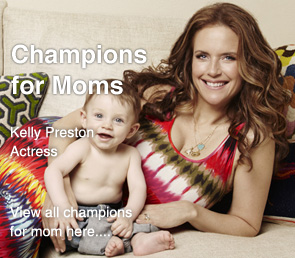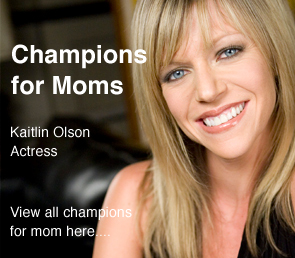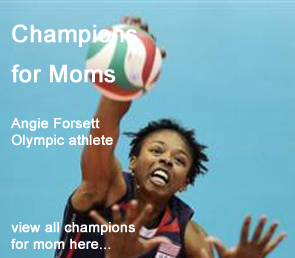If you’ve had a baby in the past year or so in the United States, chances are you know that most health insurance plans are now required to provide you with a breastpump free of charge. This provision of the Patient Protection and Affordable Care Act (ACA) has been a boon to the breastpump industry. As Bloomberg reported on Oct 15, sales are up 34% in the past 2 years in response to mandated breastpump coverage.
What you may not know is that in addition to the breastpump provision, the Affordable Care Act also mandated that private insurers provide breastfeeding support and counseling to their patients with no cost sharing. This is a huge leap for breastfeeding mothers and their babies in the US, but unfortunately insurers are making it very difficult for mothers to access this benefit.
Although a few large insurers have been proactive by contracting with International Board Certified Lactation Consultants (IBCLCs) and providing their members with 3-6 visits with no cost sharing (Aetna is the big standout here), many other insurers have used underhanded tactics to skirt the law and prevent their members from getting the breastfeeding support they need. For US mothers who want to breastfeed, this is a HUGE Booby Trap® that prevents them from reaching their breastfeeding goals.
The National Women’s Law Center released a report in May of this year detailing the many ways in which insurers are denying new mothers access to care. At the top of the list is not establishing a provider network, and then telling mothers that the cost of a lactation visit will apply to their deductible if an out of network provider is used. Other companies have told mothers that this benefit only applies to the lactation support they receive in the hospital, and that the plan will not cover breastfeeding support past day 2-3 of baby’s life. When asking for a list of in-network providers of breastfeeding support and counseling, mothers have been referred to La Leche League Leaders (who provider peer support only, and are not health care providers), students at a Naturopathic College, and even the truck drivers (!!) who delivered their breast pumps. Still other plans have put limits on the number of visits allowed, or length of time after birth lactation benefits are provided, with one insurance company reported to provide breastfeeding support only for the 6 weeks immediately after birth. Mothers who go ahead and use an out-of-network provider may then run into problems getting reimbursed for their visits, with many reporting the need for multiple appeals to get their insurance companies to reimburse them.
New guidelines from the US Department of Labor should make it easier for mothers to access breastfeeding support and counseling without cost sharing.
We know that almost 80% of US mothers start out wanting to breastfeed, yet by 6 months only 49% are still breastfeeding at all. The rates of exclusive breastfeeding (giving only breastmilk) are even lower at 40.7% at 3 months and 18.8% at 6 months. The breastfeeding support and counseling mandate of the Affordable Care Act was enacted not to increase the revenue of breastpump makers, but to increase the chances that mothers who want to breastfeed are able to do so successfully. By making it difficult for mothers to access the care of an IBCLC using their health insurance benefits, insurers are not only preventing mothers and babies from reaching their goals, they are also breaking the law. Ironically, it is the insurers themselves who stand to lose out the most economically by preventing mothers from accessing breastfeeding support. A 2010 study indicated that if 90% of babies were breastfed exclusively to 6 months, it would save the US 13.6 billion per year, most of which would be reaped in reduced healthcare costs. For lower respiratory tract infections alone (pneumonia, bronchitis, bronchiolitis and croup) exclusive breastfeeding for 4 months in 90 percent of US babies would result in a cost savings of over 1.8 billion dollars in just 1 year. By denying mothers access to skilled lactation care, insurers are losing hundreds to thousands of dollars for each child who is not breastfed as long or as exclusively as the family had planned.
On October 23 of this year, the US Department of Labor released a list of frequently asked questions about the Affordable Care Act, including responses to many of the issues mothers have dealt with when trying to access lactation support and counseling. Among these are the requirement that non-grandfathered health plans publish a list of in-network providers for lactation support and counseling, and provide out-of-network lactation support and counseling benefits without cost-sharing if they cannot give their patients access to in-network providers for these services. The document also clearly states that coverage for breastfeeding support and counseling AND supplies must continue for the duration of breastfeeding, meaning insurers are not permitted to limit coverage of lactation support to the duration of the hospital stay, or place time or visit number limits on the breastfeeding support and counseling care mothers and their children receive. According to the Department of Labor, as long as you plan to breastfeed, you should be able access care from a skilled breastfeeding support provider (like an IBCLC) to help you reach your breastfeeding goals, and receive access to a breastpump if you need it.
What does this mean for pregnant and new mamas? If your insurance company is denying you coverage for breastfeeding support and counseling for any of these reasons, they are breaking the law, and now you have the evidence to prove it!
- Refer them to the Department of Labor’s FAQ site for the ACA, submit an appeal, and submit a complaint to your state Department of Insurance.
- Then contact the National Women’s Law Center CoverHer line to report the violation. The National Women’s Law Center also has a Toolkit with Phone Scripts and a ready made Appeal Letter.
- Join the Best for Babes advocacy team and become an ambassador for change!
Fight for your right to breastfeeding support, and let’s get rid of this Booby Trap once and for all!
Jennie Bever, PhD, IBCLC
Jennie Bever Babendure, PhD, IBCLC is co-owner of the Arizona Breastfeeding Center and an Assistant Research Professor in the College of Nursing and Health Innovation at Arizona State University. When she is not doing research or helping mothers and babies breastfeed, she is chasing and snuggling her 3 sweet boys. Jennie’s own struggles with breastfeeding her first child encouraged her to become an International Board Certified Lactation Consultant and a passionate advocate for mothers and babies. She also blogs at www.breastfeedingscience.com.
















Sadly this doesn’t even apply to many of us who are grandfathered plans where there are no breastfeeding benefits.
So, when are we going to get the ball rolling on a class-action suit against the companies that are pulling this crap?
I can not find in the Department of Labor document anything regarding reimbursement of services by an IBCLC. It still only states that services would be covered if performed by RN or similarly licensed provider in the state.
Hear, hear! Excellent synopsis of how the intent of the law is being undermined by inconsistent interpretation and application by commercial interests…including our friends the insurance companies.
Pingback: Can insurers deny coverage for breastfeeding mothers? | Riverdale Lactation Center